|
European Rugby Champions Cup
No hiding from southern hemisphere in Champions Cup kick off
Martyn Thomas
November 13, 2015
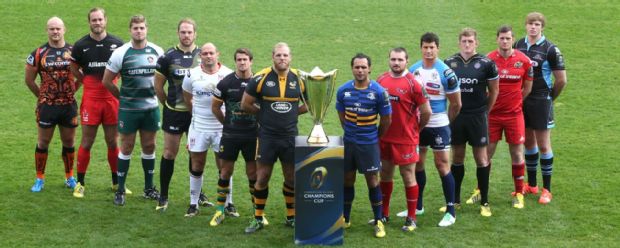 © Premiership and Pro 12 captains Friday night marks the start of the new European Champions Cup season with many northern hemisphere stars hoping to rebuild reputations following a disappointing Rugby World Cup. Leicester Tigers kick things off at Welford Road against Stade Francais with three players -- the Youngs brothers, Ben and Tom, and Dan Cole -- heavily involved in England's pool-stage debacle. Wing Niki Goneva also fell at the first hurdle with Fiji, while their visitors arrive with several players, Pacal Pape and Sergio Parisse among them, still licking their own post-tournament wounds. European competition provides an opportunity for redemption, but also a chance to renew rivalries with some of the best players from the southern hemisphere. Dan Carter -- who has signed a deal with Racing 92 -- is the standout name making his way north and heads a mouth-watering cast that includes Quade Cooper, Victor Matfield and Ma'a Nonu to name just three. Scarlets coach Wayne Pivac branded their arrival "fantastic" for the tournament, its fans and, "great for our young players to come up against some of the best players in the world". Ospreys captain Alun Wyn Jones, meanwhile, suggested it was proof the northern hemisphere doesn't lag quite as far behind the south as people might make out. He said: "All these players that are coming up here to play in these French and English teams, it bodes well for European rugby and this competition that they want to be involved in it." 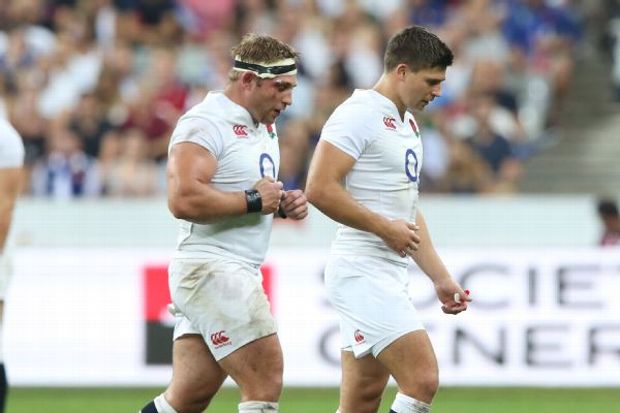 © David Rogers/Getty Images Crises, what crises? Yet, the fact remains that no northern hemisphere side reached the last four of the World Cup and their failure to do so was no anomaly. Since the dawn of the professional era, the home nations have won just 38 of 218 games played against the traditional southern hemisphere powerhouses, Australia, South Africa and New Zealand. Of those wins 22 were recorded by England, while they are the only side to beat the All Blacks (three times) in 63 combined attempts. But why do northern hemisphere nations find it so difficult to beat the big three, and what can be done to ensure the playing field is levelled in future? For Wasps captain James Haskell, Europe's biggest hindrance is its climate. The England flanker, whose career has taken in spells in France, Japan and New Zealand, recently advocated a switch to summer rugby and believes that the warmer climate down south is one of many reasons why they produce more skilful players. "I think it's pretty simple really," Haskell told ESPN. "They play touch from the age of five, they don't have a league that requires relegation, they have better surfaces, better weather and are able to play a better game 99 percent of the time. 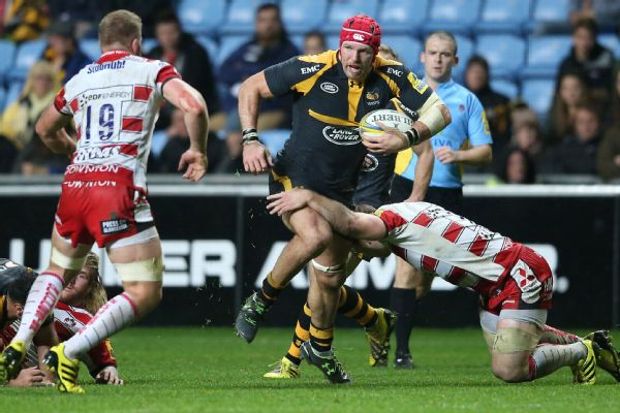 © David Rogers/Getty Images "We play in winter, we get a few months decent play and then we end having to play relegation battles, [after] a massively long season. Listen, if I'd been passing a ball around since I was five years old in the sun all the time, then I might too have handling skills." Haskell's was a view backed up by a number of coaches as they pondered the factors for northern hemisphere rugby's inability to match the SANZAR nations. The bulk of domestic, European and international rugby played this side of the equator is done so on pitches that are far from conducive to running rugby. In such conditions pragmatism can take hold amid the clamour for results. "The conditions make a big difference. Having played in Australia, they have a different mindset of how you play because they can," Harlequins academy head coach, Howard Graham, says.
"Would boys rather play like that here? Without a doubt because they enjoy it. You see it with our team, September we're fantastic, October we're very good, you get into November, December and things are starting to slow down, we can't really play our high tempo, all-inclusive game until it starts to dry out again. "In general we want to play as much as we possibly can during the season. There will be days when we just can't do that because the weather doesn't allow us to." Of course that argument falls down somewhat when you consider the world champion All Blacks represent a country whose climate can be every bit as inhospitable as Europe's. Indeed, the thermometer in Christchurch can dip below freezing in winter, yet Carter was still able to make the right decisions when it mattered. 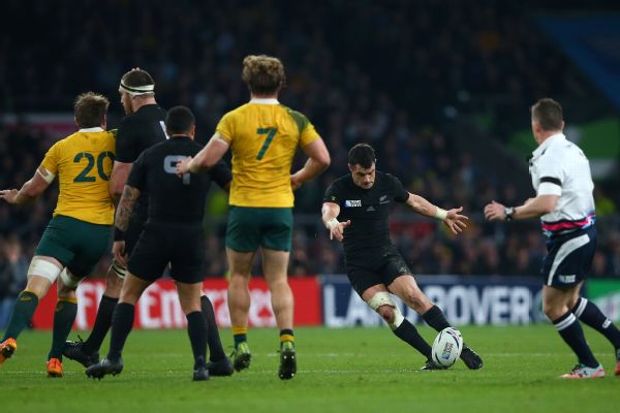 © Dan Mullan/Getty Images And ultimately that is what the perceived gap boils down to, an ability to do the right -- often simple -- thing when the pressure is on. Had George North trusted his instincts against Australia, for example, instead of taking contact then the debate about a divide might not even be raging at all. Yet, Wales -- and Ireland, England and Scotland -- fail consistently to see out games against the big three. "All the teams that the All Blacks play at international level, the top-tier nations are all physically as strong, technically probably as good -- it's the ability to put that little five percent extra into the game where you've got to the ability to make good decisions," says John Haggart, International High Performance Unit Manager with the Canterbury RFU. "When you have someone like Carter, that just adds to it. But again you've got to grow those players to that point." Decision making is an intangible skill. It is not something that can be easily coached. However, on the training pitch is exactly where work is being done to ensure the next generation of players do not falter when they are pitched into such situations. "I think if you look at the World Cup the ability for our players to execute and make correct decisions under the pressure of international rugby is probably an area that we didn't do consistently enough," Stephen Gemmell, Scottish Rugby's Head of Performance Development, admits. "Individually we still need to challenge our players on those core skills." 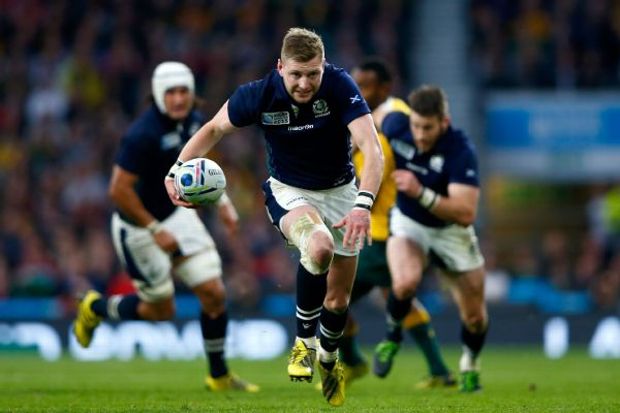 © Shaun Botterill/Getty Images Gemmell adds: "It's about developing the individual and their ability to execute those skills and those decision-making requirements and then ensuring the level of competition we have for those players regularly, both through their club and school, and through what we do at academy match level and obviously into age-group international rugby. "It is [then] putting those skills under greater pressure, so that our players learn more through those earlier stages and then are fine-tuning as they go into the professional game." Scotland, PRO12 champions Glasgow Warriors and Challenge Cup runners-up Edinburgh, are benefiting from a tie-up between the Scottish Rugby Union and Canterbury RFU. The John Macphail Scholarship has seen a host of players and coaches -- Jonny Gray, Sam Hidalgo-Clyne and Finn Russell among them -- head over to New Zealand to see how the other half live. "It's not about them doing things always better, it's just about opening people's eyes to other environments," Gemmell, who admits the fact Scotland have had "two goes" at professionalism has not helped their cause. "You can always learn from other people and it's how we bring those messages back and impart them." Recipients of the Macphail Scholarship are not necessarily expected to return to Scotland in awe of their cousins down under. Rather, it is hoped they might realise that conditions, facilities and coaching are not too dissimilar to back home -- albeit in a country where rugby union is the No.1 sport. 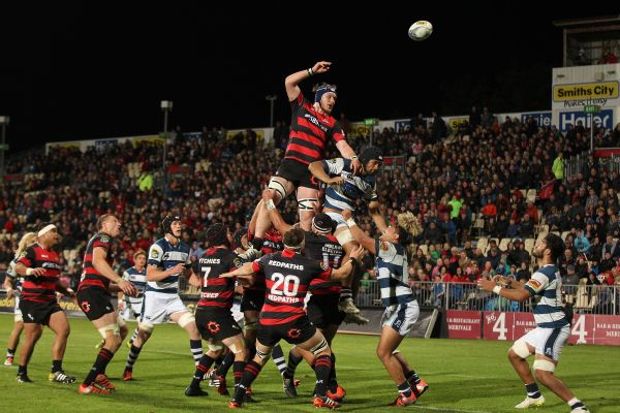 © Martin Hunter/Getty Images And that is, perhaps, the one marker that makes New Zealand unique. Union exists in a vacuum, untouched by league, football, Aussie Rules or cricket that ensures that 99.9 percent of the population aspire to be All Blacks. When you add in a raft of outrageously gifted athletes and a structure designed to benefit the national team from high school onwards, it becomes a heady mix. "I think culture is a word that's banded around a lot," Haggart says. "We've had a relationship with the Brazilian Rugby Union, for example, trying to support and grow their high performance programme and one of the things you quickly find out is that you can't take one rugby culture and implant it in another organisation and try and use that culture. "You can take bits out of it but you have to develop your own culture and that's something that takes time." So, if copying the All Blacks is not a guarantee for success, is there any hope for the northern hemisphere nations as the European season takes hold? For Haggart, the answer is yes. "In New Zealand we are concerned about how good teams can be in the UK when they get things dead right," he adds. "When I look at what Scotland are doing, I look at what England are doing, Wales and Ireland. Those four nations, they are top nations and they are absolute and massive threats." This weekend, players on all sides have the opportunity to start proving him right. © Martyn Thomas
|
Live Sports
Communication error please reload the page.
-
Football
-
Cricket
-
Rugby
-
- Days
- Hrs
- Mins
- Secs
F1 - Abu Dhabi GP
Abu Dhabi Grand Prix December 11-131. Max Verstappen ()
2. Valtteri Bottas (Mercedes)
3. Lewis Hamilton (Mercedes)
4. Alexander Albon ()
5. Lando Norris ()
6. Carlos Sainz Jr ()
-
ESPNOtherLive >>
Boxing - Nelson v Wilson; Simmons v Dickinson; Joshua v Gavern (Metro Radio Arena, Newcastle)
Golf - Houston Open
Snooker - China Open
Tennis - Miami Open

